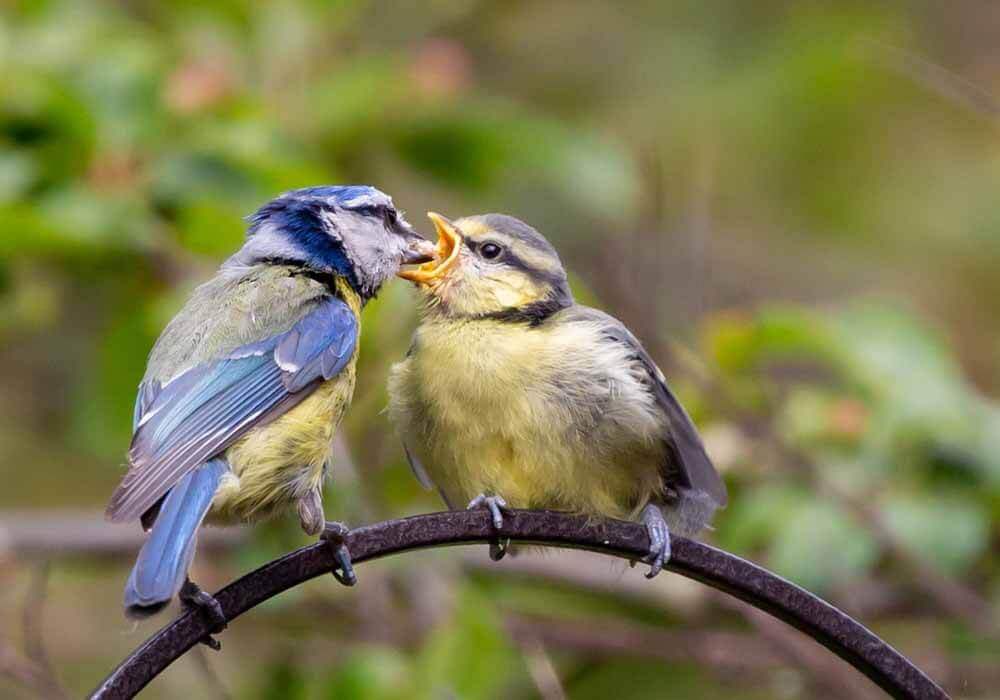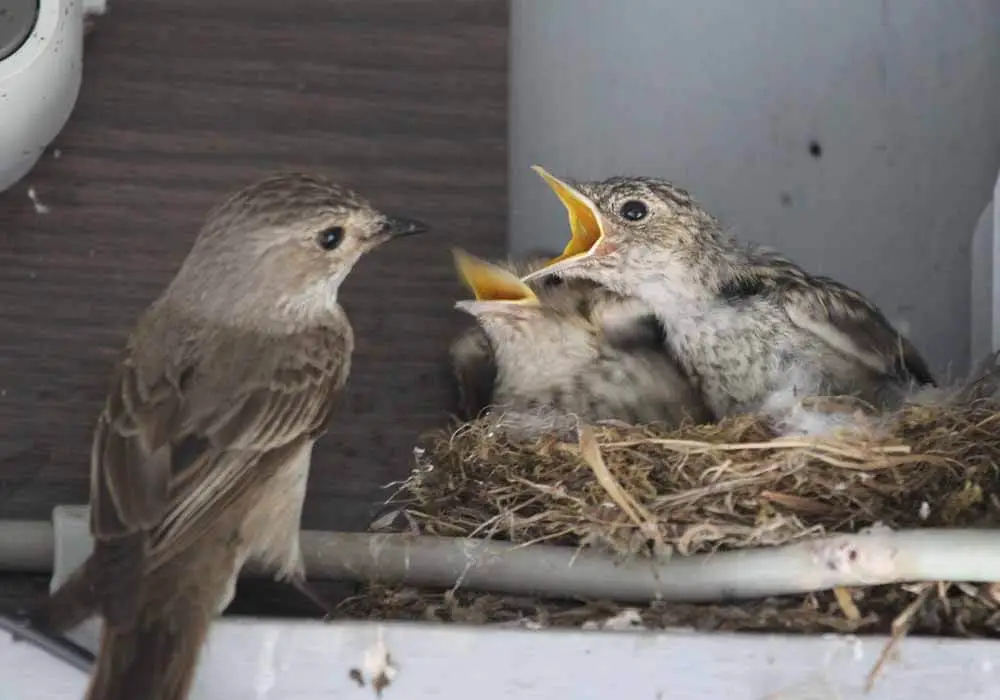How Mother Birds Feed Their Babies
Bird Parenting 101
Diving into the intriguing world of birds and the nuances
of their lifestyle, let's discuss how mother birds feed their babies. Many
factors come into play in the feeding process, from the species of the bird,
nesting behavior, the bird's diet itself and the parental roles displayed in
various species.
Bird species vary significantly, with thousands of
different types of birds across the globe. Each species displays differing
feeding behaviors and styles. For example, the way a hummingbird mother feeds
her offspring varies greatly from how an eagle nurtures her young.

Nesting behavior too plays a pivotal role in feeding.
Birds build nests to protect their eggs and chicks, and the design of these
homes may influence feeding strategies. For instance, ground-nesting birds
provide a different feeding approach compared to those that nest in trees or
artificial structures.
Diet also significantly influences how mother birds feed their babies. Hummingbirds feed their offspring nectar and insects, while eagles may provide a diet of fish and rodents to their young.
Parental roles vary across bird species. In some cases, it is primarily the mother who feeds the babies, while in others, both parents share the job. Certain species even have 'helpers' from previous generations assisting in the feeding and care of young ones.
These various preconditions offer a broad canvas on which
to paint the specific details of how mother birds feed their babies. The
delights of these delicate feeding processes and the strength of motherly love
in birds is truly something to behold.
How Mother Birds Feed Their Babies...
How Often Do Birds Feed Their Babies?
Observing bird parents busy with feeding is a common sight during the birthing season, but how often do birds feed their babies? Birds' feeding schedules are quite busy. A baby bird typically eats every 10 to 20 minutes during daylight hours, meaning their parents are constantly on the go.
This feeding frequency is due to the rapid growth rates of bird chicks. Their metabolism requires a constant supply of calories. For this reason, parents may make hundreds of feeding trips each day to cater to their offspring’s needs.
However, the feeding frequency also depends on the bird
species and their diet. For instance, predatory birds, like owls or eagles,
with a meat-based diet may feed their young less frequently due to the more
substantial input of calories and nutrients in each meal.
Do Birds Feed Their Babies Milk?
While mammals are known for feeding their babies milk, birds do not possess mammary glands, and hence, they do not feed their babies milk. Birds feed their young a variety of diets based on their species — fruits, seeds, insects, worms, fish, or even other smaller birds can be on the menu.
For several species, such as the thrush or the blackbird, the baby birds usually subsist on a diet of insects and worms. While granivorous birds like sparrows and finches feed their babies with a semi-digested seed mush.
Some bird species use a technique known as regurgitation,
where they consume the food, breaking it down partially through digestion
processes, and later regurgitate this to their young ones. This makes the food
easier for their babies to consume and digest.
How Do Mother Birds Give Water To Their Babies?

Moisture is essential for every living being, but how do mother birds give water to their babies? In contrast to what one might assume, baby birds typically do not drink water like adult birds. They receive the necessary hydration from the foods they consume.
For example, insects and fruits, staples in the diets of many baby birds, contain high water content. In most bird species, a high-water diet fulfills the hydration needs of the chicks until they are old enough to drink water on their own.
In the case of species living in desert habitats, birds may take additional steps to ensure their chicks receive enough hydration. The Sandgrouse, for example, is known to soak its belly feathers in water and carry it back to its nest to provide the chicks hydration.
Caring and Nurturing: Mother Birds in Action
Beyond feeding, has anyone ever marveled at the caring instincts and nurturing behaviors of birds towards their broods? The level of dedication, hard work, and constant vigilance required by the parents, especially the mother birds, is remarkable.
The importance of a mother's role in feeding her babies
extends well beyond the biologically necessary act of nourishment. It
strengthens the bond between mother and offspring, ensures the survival of the
species, and speaks volumes about the affectionate side of the animal kingdom,
often overlooked in favor of cold survival facts.
Parental Roles and Shared Responsibilities
The process of feeding bird babies isn't restricted to mother birds. For many species, it displays a cooperative effort where both parents, and sometimes additional relatives or part of the flock, share the responsibilities of feeding and raising young ones.
Observing these intricate dynamics of bird families,
filled with cycles of feeding, nurturing, caring, and eventually letting go, is
both informative and inspiring. It paints a picture of dedication and nurturing
love that serves as a poignant reminder of the timeless ties that bind families
together, no matter the species.

About the Author...
Richard Worden, a dedicated bird lover for over 20 years, I love to share my in-depth knowledge and passion for birds. Read more About Me and my expertise in this field.
- We Know Birds HOME ›
- Bird Facts and Information ›
- How Mother Birds Feed Their Babies



